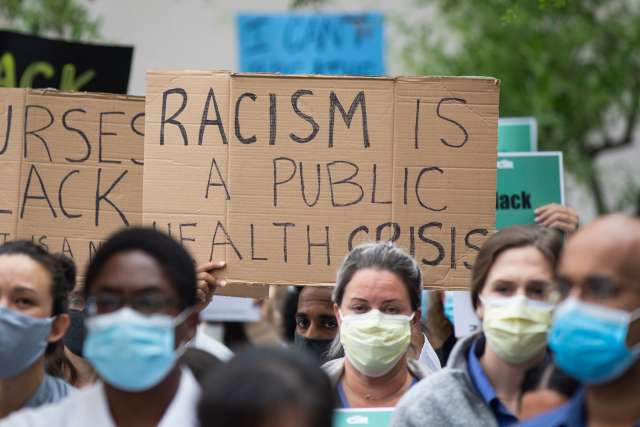It is stunning, and immeasurably sad, that 55 years after Dr. Martin Luther King, Jr., spoke before the Medical Committee for Human Rights and proclaimed, “Of all the forms of inequality, injustice in health care is the most shocking and inhumane,” we as a nation still are wrestling with discrimination.
There is a lot of work that needs to be done to right these wrongs. The legacy of racial inequality and, in some cases, outright racism in health care of which Dr. King spoke has not only undermined the health of vast numbers of people, it has created fear and suspicion among many in our communities. This is exacerbated in the current climate, in which, for many of our fellow citizens, science itself has become suspect. Even now, as we roll out vaccines to address the horrendous COVID-19 pandemic, which we all have endured over this past year, people in Black and Latino communities — the communities that have been hit hardest by this pandemic — are, after a long and tortured history of unequal access to care and unethical medical experimentation, among those least likely to choose to get vaccinated.
As a coordinator in the global student advocacy group Universities Allied for Essential Medicines, of which UCLA has a branch, said in a recent NBC News report: “The people who need it the most are the same who don’t trust it. Without considering racial equity, we deepen the cracks that systemic racism has already created in our health care system.” To which UCLA’s Vickie Mays, director of the UCLA Center on Research, Innovation, Training and Education for Minority Health Disparities Solutions, added: “Disparities beget disparities.”
The medical community has come to recognize the damage that has been caused by our past inequity. In November, the House of Delegates of the American Medical Association (AMA) adopted a new policy acknowledging that racism and unconscious bias within medical research and health-care delivery have caused, and continue to cause, harm to marginalized communities and society as a whole, and that racism, in its systemic, cultural, interpersonal and other forms, is a serious threat to public health and the advancement of health equity, and a barrier to appropriate medical care. It further vows to support the development of a broader policy to combat racism and its effects. The AMA’s policy statement honors the words of Kathleen Sebelius, who, as secretary of health and human services under President Barack Obama, said, “It is time to refocus, reinforce and repeat the message that health disparities exist and that health equity benefits everyone.”
These are concerns of national scope. What can we do at an institutional level? UCLA Health System and the David Geffen School of Medicine at UCLA are taking significant steps to address these issues. As leaders, we begin by acknowledging our past failings, that we collectively have not done enough to actively address and dismantle the structures and processes that perpetuate inequality. We have started by creating equity and anti-racism frameworks within both the health system and school of medicine; we are examining and revising our approaches to health-care delivery to underserved populations; developing and implementing new policies guiding how we build a more diverse workforce through recruitment, retention and promotion of faculty and staff of color; and creating structures to train students and implement workplace reforms within an anti-racism framework. You can read more about these efforts in this issue (“The Reckoning,” page 26)
Bringing about cultural change is difficult, but it is necessary. Each year in August we tell our incoming medical students that they should be a thermostat and not a thermometer. Today, that is as true for all of us throughout the institutions of the UCLA Health System and David Geffen School of Medicine at UCLA as it is to those students. It is not enough for us to simply monitor the environment and the climate; we now must be a part of the process that sets the climate and defines the environment.
This is a moment of opportunity, one that opens the door wider for us to deliver on our mission of providing leading-edge clinical care, research and education through a lens that looks more closely at the issues and challenges of disparities in health care that exist in Los Angeles and our broader community. In partnership, the health system and school of medicine are working to knit together our common concerns and goals to achieve the broadest possible impact.
It is a time for us to ask ourselves a critical question: “What have we done today to dismantle injustice and inequity?” Such a question is front and center in the work that we do as a public institution to ensure that patients from all walks of life have access to care and quality health outcomes, that we build a diverse workforce reflective of our community within a workplace structure that is fair and equitable, and that we train the next generations of physicians and medical scientists in the core values of diversity and inclusion.
Change will not happen overnight. This work we commit to now will be the work of a lifetime, an ongoing, evolving effort during which we must continually examine where we can best work to make the biggest difference, both internally at an institutional level, as well as for the community.
Now is the time for us — as an institution and as individuals — to step up to address these critical issues of racial inequity and injustice within our society. We at UCLA Health System and the David Geffen School of Medicine at UCLA pledge to do our part.

